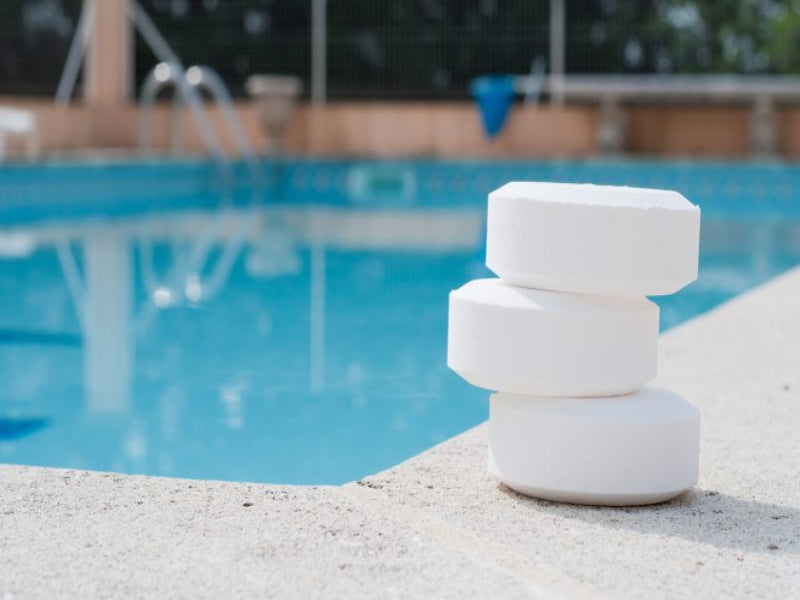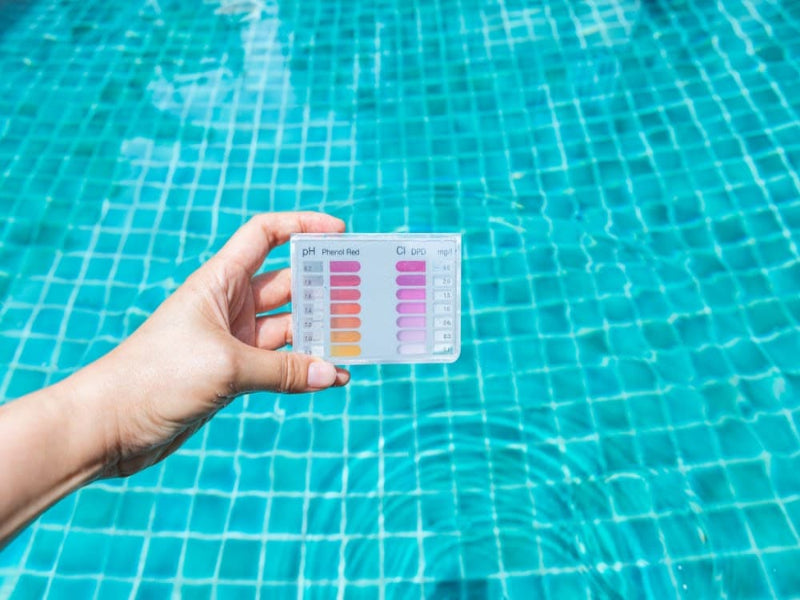Did you know that some studies have established a direct correlation between asthma in young children and elite swimmers and the chlorine found in pools? Some European government agencies even recommend caution and prevention for children under 2 years old. Caution is therefore advised if you suffer from or are predisposed to respiratory problems. A solution for the most frequent users: choose a pool that uses a different disinfection system.
Chlorine increases the risk of asthma
Studies agree that chlorine fumes released in swimming pools increase the risk of asthma.
According to a study carried out in the Netherlands on 600 swimming instructors working in indoor swimming pools (1), it appears that in these people exposed all day to chlorine, respiratory symptoms are more severe and more frequent than in the general population. The risk of sinusitis, hoarseness and bronchial hyperactivity is increased by 40%. An Italian study this time (2) looked at around thirty competitive swimmers with an average age of 14, all without asthma. After undergoing respiratory tests, it turns out that 73% of them were sensitive to classic airborne allergens, almost twice as many as in the general population, and 50% of them suffered from bronchial hyperactivity. These two factors are predictive of the onset of asthma.
According to a third study presented at the 17th Congress of the European Respiratory Society, the risk of developing asthma is tripled in children and adolescents who regularly use chlorine-disinfected swimming pools. This conclusion also applies to outdoor pools, whereas until now, it was thought that only indoor pools could promote the onset of asthma.
This study involved 850 adolescents with an average age of 15, attending three middle schools where swimming lessons were held in outdoor pools. Two pools were disinfected with chlorine. The third was disinfected with a copper-silver ionization system and served as a control. Knowing the number of hours spent in the pool, allergy and asthma history, lifestyle, etc., of all the subjects, the researchers came to the following conclusion: adolescents who had accumulated more than 500 hours of outdoor swimming saw their risk of asthma multiplied by 3, compared to those who had never attended a pool containing chlorinated water.
The real culprits: chloramines
The problem is therefore linked to chlorine, but the responsibility lies more precisely with the irritating gases which come from chlorine and which stagnate above the water, about ten centimetres from the surface, and which are the cause of the characteristic odour of the pools.
In fact, when chlorine comes into contact with nitrogenous substances, i.e. with human secretions (sweat, saliva, urine), a chemical reaction occurs, releasing gases that irritate the respiratory tract, particularly chloramines.
In conclusion, you shouldn't give up on swimming, as swimming is a particularly beneficial sport for your health. However, you should opt for a pool that uses a more natural sanitation system, such as copper-silver ionization, rather than traditional chlorine disinfection.
- Jacobs JH et al., Eur. Respir. J., 29 (4): 690-8, 2007
- (2) Brusasco V. and Rossi G., University of Genoa, Italy.
- 17th Congress of the European Society of Respirology, September 15-19, 2007, Stockholm, communication by Prof. Nickmilder M., University of Louvain, Belgium.








Leave a comment
This site is protected by hCaptcha and the hCaptcha Privacy Policy and Terms of Service apply.